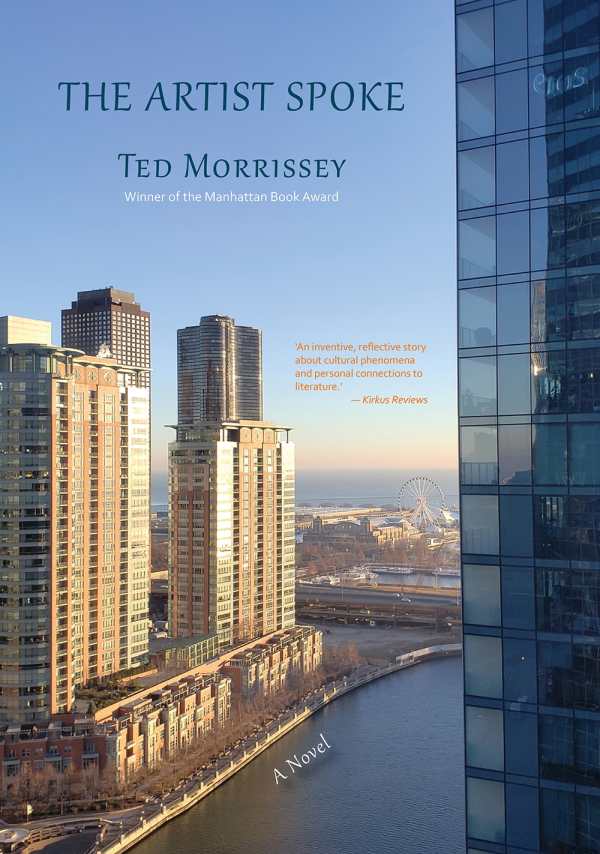The Artist Spoke
The Artist Spoke is a bookish but exciting literary mystery.
Ted Morrissey’s novel The Artist Spoke is a mysterious, mesmerizing examination of the contrary aspects of the writing life, and the fragility of relationships.
Christopher is a literature professor and writer who travels to Chicago for Revelation, a special event that’s hosted by his favorite author, Elizabeth Winters. Her Logos Alive project has assigned one word to each of the 753 attendees, which they’ve had tattooed on their bodies before the conference, according to Winters’s instructions. When compiled, these words are meant to create a story—the preface of Winters’s final work, as she was killed in a plane crash just hours before Revelation began. Winters’s partner and lawyer conduct the conference; the rest of her book, split into a hundred word sections and encrypted on microchips, is to be implanted under the skin of the attendees, and is not to be recovered for over a century.
As he lingers in Chicago to attend a memorial ceremony for Winters, Christopher develops a romantic interest in Beth, a fellow Logos member; he’s also tortured by thoughts of, and texts from, his ex-girlfriend. The books unfolds over a weekend, and a mystery of sorts is unspooled during that time: many Logos members believe that Elizabeth Winters is still alive. Their suspicion is sustained by accounts of sightings and the strange, hidden identity of one of the Revelation leaders’ companions. This, along with Christopher’s relationship with Beth, fuels the story, which includes indulgent moments of writers’ introspection, as Christopher and Beth linger at a bookstore and form ideas for poems.
The couple’s exchanges, and Christopher’s thoughts, are directed by literary references and allusions. Through them, the book debates the merits of personal and creative satisfaction and artistic growth, versus publicity, a wide readership, and financial success. As Christopher considers his own modest record of publication, he consoles himself: “there was the writing of it, the making of the text—that was the important thing, the thing that made art worth doing, even if the painting was never shown, the symphony never celebrated, the play staged… the book read.”
In part because of his lingering feelings for his ex-girlfriend, Christopher doesn’t ask Beth about her personal life and marital status, a curious decision given their immediate and obvious bond. But the characters are engaging, and the writing is full of interesting perspectives, both hesitant and explicit, on fame, fandom, and dedication. The narrative maintains an intimate, internalized style, in part through its omission of quotation marks—a decision that makes the book more difficult to read, though it forces deeper engagement. Personal color photographs of Chicago skylines and landscapes are used to divide each chapter; they’re pleasing to the eye and further enhance the book’s already strong sense of setting.
The book’s ending is a surprising, satisfying resolution to the mystery around Elizabeth Winters, with an inspiring sense of renewal for Christopher and his writing efforts. The Artist Spoke is a bookish but exciting literary mystery.
Reviewed by
Peter Dabbene
Disclosure: This article is not an endorsement, but a review. The publisher of this book provided free copies of the book and paid a small fee to have their book reviewed by a professional reviewer. Foreword Reviews and Clarion Reviews make no guarantee that the publisher will receive a positive review. Foreword Magazine, Inc. is disclosing this in accordance with the Federal Trade Commission’s 16 CFR, Part 255.

